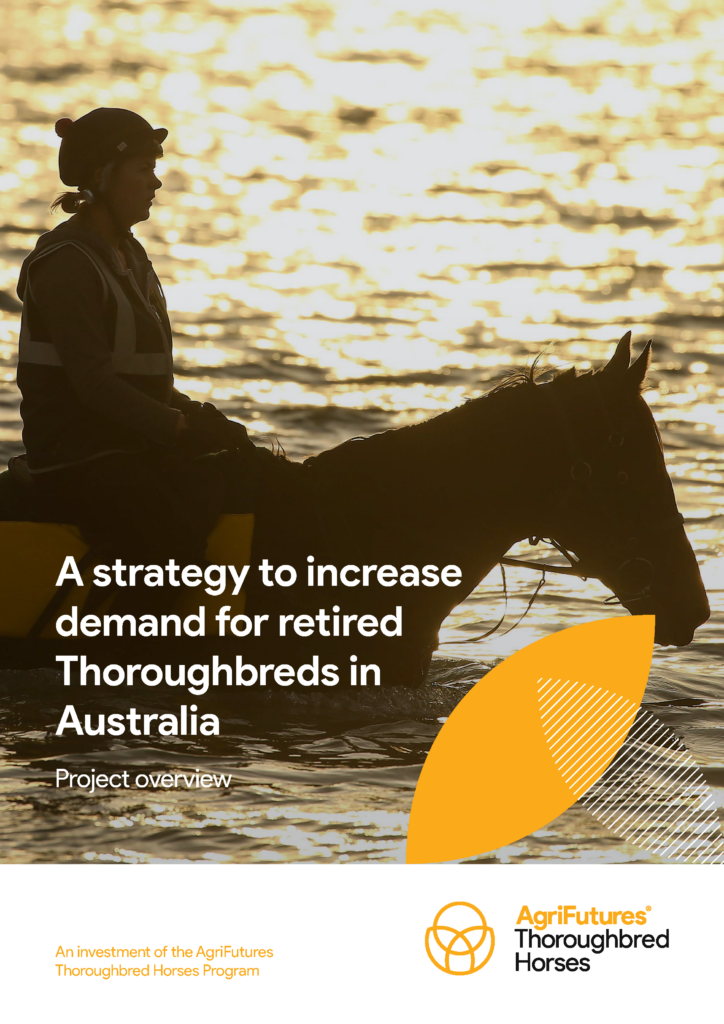Snapshot: Antimicrobial prescribing guidelines for horses
This document represents the first comprehensive resource providing detailed guidance on the management and treatment of common bacterial diseases in horses in Australia. Key highlights...
 THOROUGHBRED HORSES
THOROUGHBRED HORSES 
4 pages
Published: 31 Oct 2025
Author(s): Dr Natasha Hamilton
ISBN: 978-1-76053-594-0
Download report PDF
DownloadThe Thoroughbred industry in Australia is the second largest in the world, both in terms of breeding and the number of races held. The industry and wider community maintain an interest in the wellbeing of racehorses before, during and after their racing careers. Just over 6,000 Thoroughbreds retire from racing each year nationally and a smaller number (around 700 in the 23–24 season) retire from breeding.
Australian state-based racing regulatory bodies have established departments, funded in part by prizemoney allocations, to support retired Thoroughbreds and provide a safety net for them when needed. While the industry collects some data when horses retire from racing, less is known about what demand there is for retired Thoroughbreds. The broader horse
community often has perceptions of retired Thoroughbreds that negatively impact their ability to transition successfully into second careers. Further, there is anecdotal evidence that some factors in a Thoroughbred’s early career (before and during racing) can impact the likelihood of it suffering from poor welfare outcomes later in life.
To address these gaps in knowledge, this project will statistically analyse retirement data to accurately describe the horses leaving the industry. An in-depth survey will investigate factors influencing horse ownership in Australia and how owning Thoroughbreds could be made more attractive. The survey findings will be supported by in-depth interviews with organisations and individuals that are involved in rehoming retired Thoroughbreds. Current methods for stimulating demand will be analysed to identify what is working already, and what new strategies could be introduced.